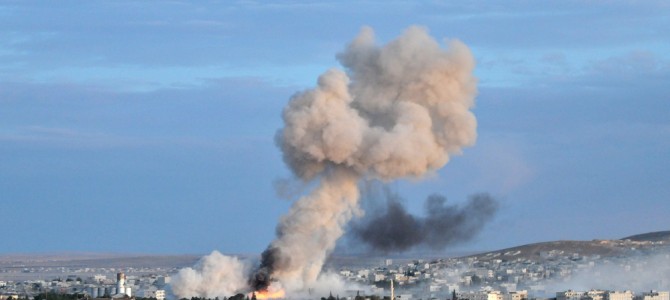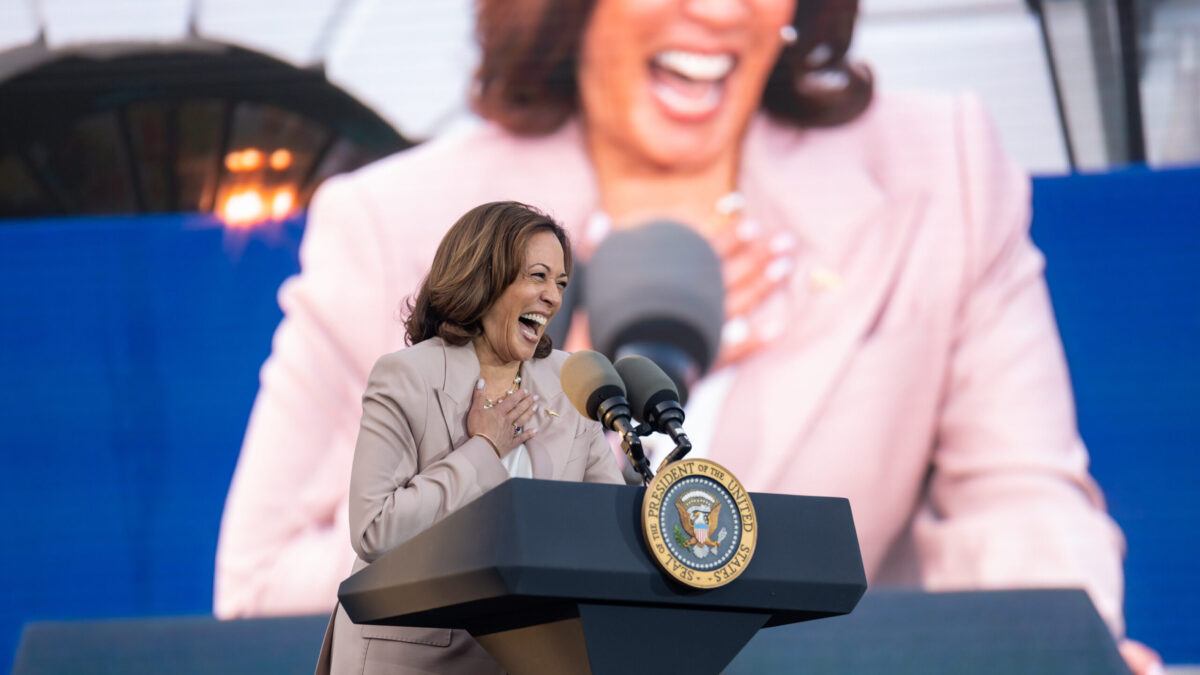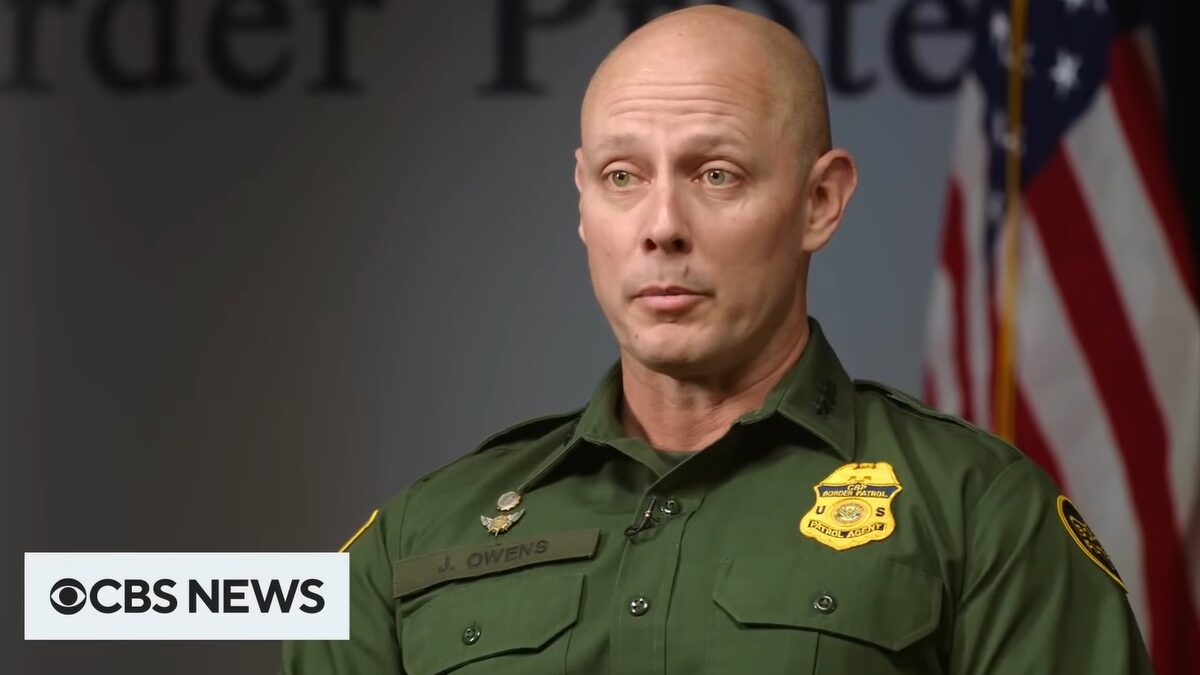
Even today, with the West and Russia edging closer to outright conflict, there’s a simple nostalgia for the Cold War era, when conflict was easier to visualize and manage than it is now. Instead of today’s hellbroth of terror groups, failed states, and warring militias, we faced a single, unified foe, an iron curtain drawn across the middle of the world to cleanly demarcate where we ended and they began.
2016 is the year—as the truth comes out about how last year’s Paris attacks could have happened—that this strangely comforting Cold War myth should die. As the latest revelations about those attacks confirm, today’s world bears much more of a resemblance to the world of the Cold War than we might wish to think—and, somehow, the West must respond accordingly.
History confirms the comparison. Think back. The geopolitically bipolar structure of the Cold War world was just one feature of the threat matrix the West faced. As conventional armies and nuclear arsenals squared off against one another, seeds of the unconventional warfare that bedevils us today had already begun to sprout. Beyond the third-world proxy conflicts and arms shipments that defined the age, the Cold War saw the beginnings of state-sponsored terrorism and infiltration as we know them today.
This Time, It’s Not Different
Many may want to cling to the “clean” Cold War myth for its own sake. But the myth also shores up the entrancing idea that the matrix of conflict jihadist Islam and its allies pose today does not rise to threat level when militant communism straddled the globe.
Circumstantial evidence has suggested to our impressionable minds that it’s different this time. After all, “nobody” really thinks absolutist Islam is a genuine intellectual and emotional competitor to Western life. To be sure, some of the West’s losers and rejects have found themselves in the arms of the Islamic State, or loosely associated with foes who appreciate, if not aid and abet, jihadist gains against the United States and Europe.
But at the height of the Cold War, a host of respectable Westerners believed communism might actually be right and capitalism wrong—whether at the level of ideology or sheer practicality. Because absolutist Islam is so alien and particular, relative to the grand yet familiar abstractions Marx ushered in, we’re apt to think the jihadists and their allies may be able to attack our people and our systems, but they cannot really defeat our civilization.
It’s easy to think this way because we’re so resistant to the prospect of another existential threat to our civilization. It doesn’t just strike people as reasonable that terror attacks won’t rise to the level of catastrophe promised by a strategic nuclear exchange. It strikes them as emotionally correct or necessary—not just because it’s easier to live in a world where a few major cities might be destroyed and not all human life on earth, but because so few people really believe we could actually win a world war against the jihadists and their allies.
If the Soviet Union seemed prohibitively difficult to defeat, at least there was a plan and enough willingness in the West to execute it. Today, it’s psychologically unacceptable for many people to imagine that we’re at acute risk of civilizational defeat yet lack a viable, acceptable blueprint to avoid that fate.
Subterfuge May Be More Effective Than Instant Destruction
Well, it’s time for a wake-up call—even though the head check we need raises the risk that fear and recklessness will increase as a result. As the emerging truth about the Paris attacks shows, the parallels are clear between the “dirty” truth about the Cold War and the dark reality of the state of play in our conflict with international jihadists and their allies. The nexus of state-sponsored terror, subversion, and infiltration established during the Cold War has been reactivated, threatening not just Western people or Western systems but Western civilization itself. We can argue over whether this threat is “existential” or not. Most significant is that it really is a civilization being targeted, on top of people and systems.
Let’s be clear about what this means. In theory, terror, subversion, and infiltration could destroy Western civilization by carrying off a kind of coup on the communist model: you wake up one day and a revolutionary vanguard has seized state power and the means of production. However nightmarish, that’s not the kind of attack on Western civilization we should focus on.
More plausible, more efficient, and more effective is an attack with more limited and devious aims. Much as a Russian spy might opt against killing a victim outright, choosing instead to administer a debilitating but nonlethal dose of poison, jihadists and their allies are now well-positioned to cripple Western civilization, inflicting harm without provoking a true world war the West would eventually win.
This is the lesson we are only now able to learn from Paris. France, in a jihadist proof of concept, is now on the verge of becoming a garrison state. Officials have been reduced to monitoring airport and public transit workers for signs of jihadist activity—or mere sympathy. The French head of intelligence, Patrick Calvar, admitted to Parliament that he expected “a new form of attack” from the Islamic State, “characterized by placing explosive devices in places where there are large crowds and repeating this type of action to create a climate of maximum panic.”
What is new here is not terrorism’s fear factor. Rather, it is the active and passive paralysis that comes from a judgment that one’s society is so badly compromised from the inside that one’s civilization—one’s rights, freedoms, pleasures, celebrations, and moral values—is now inoperable.
The Paris Attacks Were More Sophisticated Than We’d Thought
Thanks to Paris, just that kind of judgment is in danger of being formed. That attack, like any attacks to follow, was about far more than the Islamic State. Rather than a ragtag band of psychotic losers engaged in random bloodshed, a growing body of evidence now suggests that the Paris attacks were driven by a Cold War-style project that united subversion, infiltration, and terror into a single plan of attack.
Doubtless, ragtag losers linked to ISIS served as the tip of the spear. But the profile of the attack’s logistician, 26-year-old Salah Abdeslam, runs curiously counter to that of a true mastermind or true jihadist, who’d have shown more brains and more of a willingness to martyr himself—especially given, as Abdeslam was, more than one perfect opportunity.
Yet the Paris attackers carried out a plan crafted at a level of sophistication that raises serious and immediate questions, complete with strict communications security and explosives too dangerous and delicate to be wired by amateurs. In a pattern last exposed so dramatically during Algeria’s struggle with Islamism in the ‘90s, the Paris attack shows hallmarks of involvement by a foreign intelligence agency.
“Who might have stood behind the Paris attacks has been the subject of extensive speculation in Western intelligence circles since last November,” one former National Security Ageny counterintelligence expert recently noted. “We need answers to these complex and messy questions, but nobody publicly wants to ask them.”
Nobody, perhaps, but those with the most to say and the least to lose. In an interview with Gavin McInnes published at old-school paleocon Taki Theodoracopoulos’s eponymous online magazine, Eagles of Death Metal frontman Jesse Hughes made a series of superficially astonishing claims about what really happened when his Bataclan concert was turned into a slaughter.
“There’s no denying the terrorists were already inside, and they had to get in somehow,” he said. “During the shooting I went outside and the backstage door was propped open. How did that happen?” “There were two girls who were involved,” Hughes added. “They were at the venue and vanished before the shooting, and these women were in traditional Muslim garb.”
Jihadis May Not Be Working Alone
In a quip assured to trigger some skepticism, Hughes claimed he saw “Muslims celebrating in the street during the attack. I saw it with my own eyes. In real time! How did they know what was going on? There must have been coordination.” Shortly after the Paris attack, however, I was quietly told the same by a well-connected North African: an operation like that, the individual explained, simply could not be conducted without sympathizers and accomplices on the inside.
Although there is no smoking gun linking a foreign government or organization to the Paris attacks, there is a prima facie case that some were involved, most likely utilizing the triad of subversion, infiltration, and terrorism that gave the Cold War its truly dirty and messy character. What’s more, it’s easy to hazard an educated guess about who the attacks’ putative foreign operators might be. You’d be hard-pressed, for instance, to find an outside organization with the requisite motives and capabilities if you ruled out Hezbollah. From there, it’s not unreasonable to imagine connecting a line of complicity to individuals within one of Hezbollah’s favorite foreign governments.
There is no question that this kind of theorizing can get out of hand—not just due to human beings’ love for a gripping story, but because (let’s face it) most people are required to make sense of today’s world without ever getting to learn the most crucial information. Still, what we can glimpse of that information is pointing good analysts toward a view of today’s deepening world conflict that’s starkly reminiscent of the Cold War at its most shadowy and lethal. “Existential” or no, the threat posed to Western civilization is real, and the time to adopt a workable plan to confront that threat is growing short.








